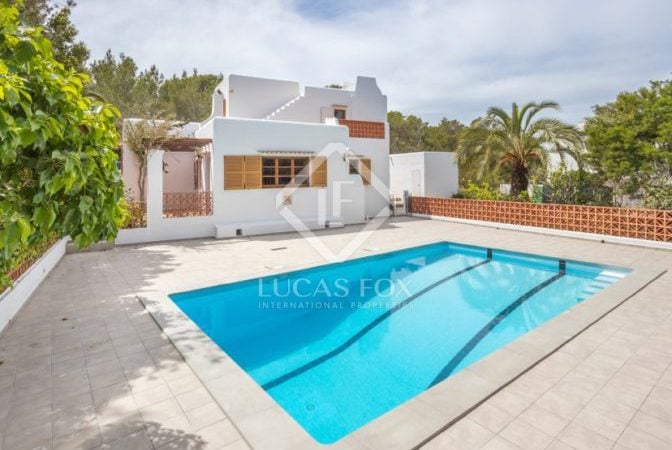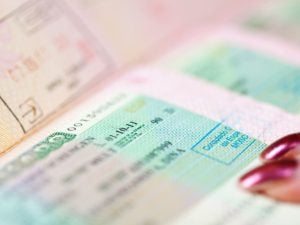How to Successfully Sell Your Home in Spain
What are the processes and pitfalls to selling a holiday home in Spain? Lucas Fox Partner Tom Maidment shares his expert advice and tips on how to get the best price for your property.


Tom Maidment, Partner Lucas Fox
Looking at the nuts and bolts of selling a home in Spain and dealing with the market, what are the advantages of using a professional broker?
Various websites now offer services for sellers to advertise their property directly and avoid paying agency fees but unless you have a strong understanding of the market, the value of your property, of the sale process and related legal issues, our best advice is to leave it to the professionals. If you choose a reputable, professional agency to market your property the agency commission (which is paid by the seller in Spain) will be money well spent.
When selecting an agency research is key. We would recommend making a shortlist of 2 or 3 agents and seeking a valuation from each. If you don’t know the agency make some enquiries and speak to other property owners for testimonials. When presented with the valuations don’t be afraid to ask awkward questions. Make sure you fully understand how they reached their recommended sale price. They should be able to demonstrate a strong knowledge of the market, including examples of recent sales and comparable properties for sale in the area.
Agents in Spain charge more commission than in some European countries (and substantially more than in the UK) – up to 6% in places – so find out exactly what they intend to do to justify their fee. Don’t be afraid to put them on the spot. Select an agency you feel comfortable with and one that you will enjoy working with. The house selling process can be long and stressful so it’s important that there is a good rapport. Some agencies will either ask or insist on a sole agency instruction. This is fine providing you are confident that they are the right agency for your property and that they are going to be able to find the right buyer. It sounds obvious but you need to establish who is buying in the area where your property is located and finding an agency who can target the relevant markets. Don’t get stuck in an exclusive agreement with an agency only to find that they don’t have the clients for your property. If they insist on an exclusive instruction for 12-month period, it is possible that they don’t feel confident that they can sell. 6 months should be sufficient if they have the right client profile.
Likewise, don’t instruct too many agencies. If you decide against exclusivity then we would recommend working with no more than 3 agencies. Any more than this and the property will be overexposed and this will be detrimental to the property’s appeal.
How do you navigate the legal position and deal with any local tax issues?
Instruct a local lawyer to review sale contracts and advise you on your tax liabilities. Your Estate Agent can, of course, also advise but we would recommend that you use a lawyer. The main taxes to be paid by the seller are the Capital Gains Tax (CGT) and the Plusvalía municipal (the tax on the increased value of the land since the date of purchase). As a non-resident you should also have been paying Non-Resident Income Tax whilst you have been owner of the asset. If you haven’t been doing so this will catch up with you when it comes to selling. Be aware that there is also now a concerted effort in Spain for properties to be correctly and accurately described in the Land Registry so if you, or a previous owner of your property, has extended the home or, for example, constructed a swimming pool and this hasn’t been formally inscribed in the Land Registry, this will have to be declared either prior to or at the moment of sale and you will be required to pay tax on the additional declared square metres. Be aware too that in Spain taxes can vary depending upon the autonomous region so try to find a lawyer from the local area as they will have specific local knowledge.
As a non-resident seller your purchaser will retain a 3% withholding tax from the final price and pay this to the tax authorities on your behalf as a downpayment on your CGT liability. Once you have submitted and processed your tax return you will either receive a rebate or a bill for additional CGT. In the case of the former, be warned that this can take a long time to be processed.
Then, what happens once you sell? How do you get the money home safely and cheaply and what’s next in terms of tax liabilities – income, capital gains and inheritance?
Spain and the UK have a double taxation treaty so you will only pay CGT in one country and this is normally in the jurisdiction where the asset is owned.
In Spain the standard process is for the buyer to present the seller with a bank guaranteed cheque in the Notary’s office on the day of the signing. The quickest way of clearing the funds is through your Spanish bank account (paying it into an account in the UK can take several weeks to clear and may incur substantial charges). There are plenty of FX companies who can assist with money transfers back to the UK. Transferring money this way often guarantees a better rate and less (or no) bank fees. Perhaps the only apparent benefit of Brexit to date is the devaluation of the Pound against the Euro which, for UK sellers taking their money back to the UK, is a big plus particularly if they purchased their asset when Sterling was in a much stronger position. This may mitigate some of the pain caused by the sharp drop in Spanish property prices during the years of the crisis.
For information about buying in Spain take a look at our Buying Guide






